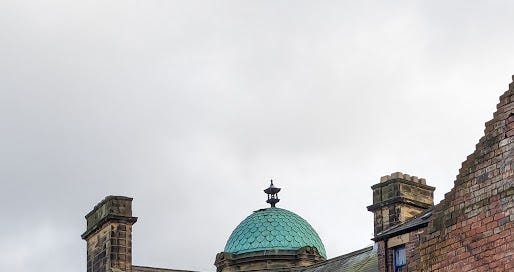Jenny McNamara gives a personal account of her experience as part of an advisory group to the Project Board for the Newcastle Cultural and Creative Zone, highlighting the lived realities and nuances of cultural production that are often disregarded within top-down schemes.
Culture needs money, the sector is wildly cash strapped and under-resourced. In the recent report by The University of Glasgow and DACS, it said artists earn on average £12,500 total, including any other part time jobs. We know that this is over *£11k* below the minimum wage, the minimum the government says we need to survive. The reality of earning this little means struggling to afford basic necessities and bills. It means not having savings, not being able to plan, stressing over where every next pound is coming from and working crazy amounts of hours a week. This is my experience and the experience of almost all the artists I know.
When I heard about the new Cultural Creative Zone (CCZ) I felt really excited. The idea was that investment from central government would pay for three new cultural zones in the North East; in North Shields, Berwick and Newcastle. The government committed a whopping £5m to the project, each zone receiving £1.7m! The phrase ‘grassroots led’ was used a lot and the initial idea was to take over the empty shop spaces on run down streets in the city centre, and transform them into creative workspace for artists. In Newcastle, at first the zone was called (the magical sounding) ‘Clayton Street Corridor’ and is now called Creative Central Newcastle.
As a newly elected rep I felt hopeful and I had lots of questions. Firstly, what was the advisory group and who else was on it? What was this ‘zone’ going to be? And a big question I had and still don’t know the answer to is: who is the zone for?
After uni, there’s an expectation to become a financially stable ‘professional’ and when that doesn’t happen you feel that you’ve fucked up, that your work just isn’t good enough, or maybe you’re bad at writing funding applications. It doesn’t help that artists work alone so much of the time, acting as project manager, fabricator, accountant, development and reporting manager, marketing department and creative director for their own practice. They are the busiest people I know. You almost have to be a masochist to be an artist these days.
As researcher Su Jones said in a negotiation training session I did with her recently, artists have to make their work. If there are times where they can’t, it can actually make them feel sick. I agree with this. I have a compulsion to make my work. I’m grateful to have a strong creative drive, but on the flip side, this passion can make artists vulnerable to bad opportunities. These can look like low or no pay, having to pay for the opportunity to do the work, working too many hours in too short a time, unreasonable requests, bad communication, not enough support, gaining audiences, demographics or other things that are beneficial to the commissioning organisation, but not to me.
I constantly felt like a trouble maker, but I didn’t want to make trouble. I tried to highlight concerns from an artist/member of the creative community point of view.




